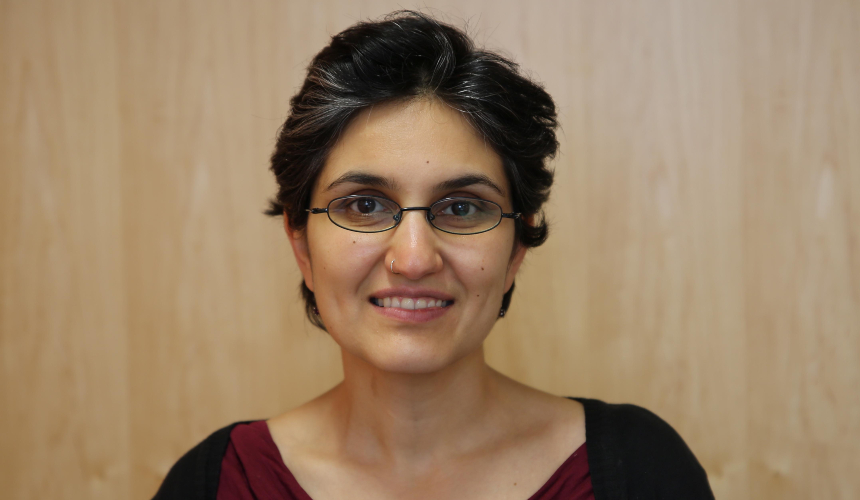Expert voice
My dementia research shows how desperately Black and South Asian people need services to change
Dr Naaheed Mukadam shares her experience of equality diversity and inclusion (EDI) in her research and advises early career researchers (ECRs) how to get into this research space.

Dr Naaheed Mukadam is an Alzheimer’s Society Clinical fellow at UCL. Her research is looking at ethnic differences in dementia risk factors in Black and South Asian communities, as well as pre and post-diagnostic support.
What sparked your interest in this research area?
During my practice as a consultant old age psychiatrist, I noticed that I wasn’t seeing many people from minority ethnic groups in attendance at the memory clinic.
This was unusual given the demographic of people in Camden – where the memory service was located.
Following on from these experiences my interest in ethnic inequalities led me to pursue an academic career.
During my masters I wanted to understand the barriers to getting a dementia diagnosis within minority ethnic groups. I then went on to study a PhD, which involved developing and testing an intervention to encourage people from the South Asian community to come forward if they were experiencing memory and thinking problems. This was in the hopes of encouraging a timely diagnosis.
What advice would you give to ECRs who want to make their research more inclusive?
If you are an ECR wanting to get into this space, you need to think about EDI at the beginning stages of your study design. If your study needs patient and public involvement, then try to involve as many people from diverse backgrounds as you can, to ensure your research is as inclusive as possible.
Did you experience any challenges when conducting your research?
Historically large data sets – which are essential for my project, were not ethnically diverse and funders remained concerned about the quality of the data.
Despite carrying out preliminary work to calculate how many people from diverse backgrounds were in these datasets, funding bodies were still sceptical about how I would answer my research questions.
Thanks to funding from Alzheimer’s Society, I was able to overcome this challenge and go ahead with my research.
I found that datasets had a lot of information about people from different ethnic groups, and where there were gaps in the data, I used techniques to account for the missing data.
The academic journey can have many hurdles, and while it may hurt for a moment, these experiences have made my proposals better and helped me to be a better communicator and researcher.
How did you access datasets from diverse communities?
Finding good and diverse datasets required some perseverance, and it took a couple of months to find datasets with enough people to carry out my study.
The Clinical Practice Research Datalink (CPRD) was a great resource as it has datasets from millions of people from diverse backgrounds and is more representative of the UK population than others.
I spent a lot of time searching the internet, networking, and speaking to other colleagues and researchers who were already interested in ethnic minority-related research.
What would you want people to get out of your research?
Our results sadly showed that people of Black and South Asian heritage are diagnosed with and pass away with dementia at a younger age.
People from these groups are losing more years of life when compared with white participants in the study.
Data, like that shown in my study shows how desperately people of Black and South Asian heritage need services to change.
These results should send a strong message to the healthcare system to really think about the needs of people from diverse groups.
It’s important that everyone, regardless of their ethnicity or cultural identity has the same level of access to a timely diagnosis, as well as a good quality of care and support after diagnosis. Evidence shows that this is not happening and clearly this needs to change.
We need to develop better ways to engage with and support people from minority ethnic groups so that we can close gaps in health access experience and outcomes.
This Black History Month, we wanted to highlight how critical it is that we increase diversity in research to ensure that we're changing the lives of all people affected by dementia.
Encouraging people to take part in dementia research
Join Dementia Research is a UK-based service that allows people to register their interest in taking part in dementia research.



